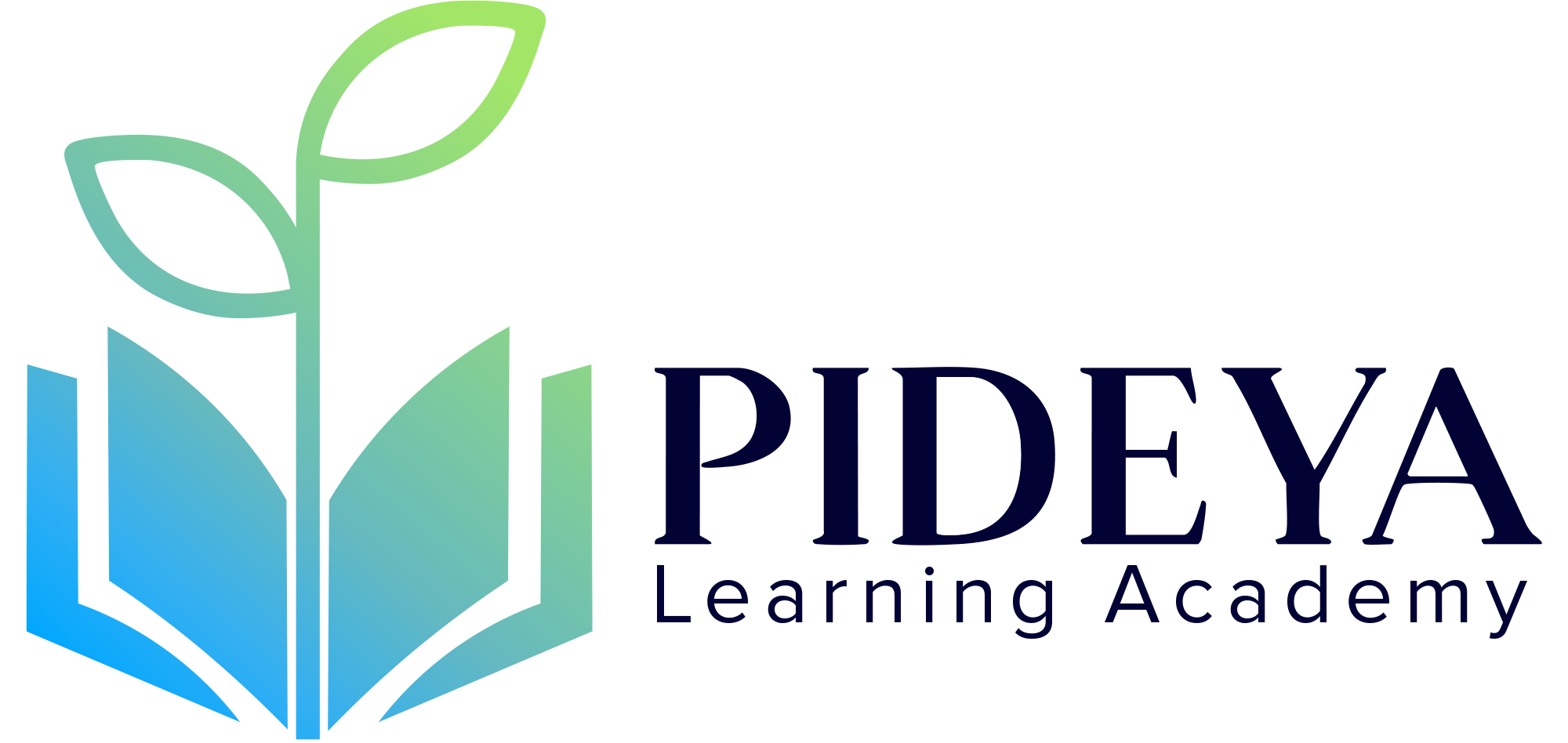Introduction: Why the Future of Logistics Demands a New Mindset
Global supply chains have evolved into high-speed, high-risk ecosystems. From the rise of AI and automation to geopolitical uncertainty, logistics professionals are under pressure to optimize operations, reduce carbon footprints, and improve transparency across all functions—from procurement and warehousing to distribution and transportation.
According to the World Economic Forum, disruptions in the supply chain cost businesses an average of 6% in annual revenue, while 89% of logistics leaders cite digital transformation as the top priority in the next five years1. At the same time, regulatory compliance, sustainability mandates, and risk management are shaping how procurement officers, supply chain analysts, and transport managers operate.
At Pideya Learning Academy, our specialized courses are designed to help professionals stay ahead of these evolving demands and develop future-proof skills in logistics, procurement, and transport systems.
🚛 1. Modern Procurement Strategies for Agile Supply Chains
Procurement is no longer about just buying at the lowest cost—it’s about strategic sourcing, supplier diversification, data-driven negotiation, and ESG alignment.
- Leading companies are implementing category management, digital RFx platforms, and supplier risk scoring systems.
- According to Deloitte, organizations that invest in digital procurement tools experience 15–20% cost savings and improved supplier performance.
- Transparent bidding and e-Tendering processes have become essential in both public and private sectors to avoid fraud and ensure compliance.
✅ Recommended Courses:
- Procurement and Contract Management Best Practices
- e-Procurement and Purchasing Management Skills
- Procurement Management for World Bank Aided Development Projects
🧠 2. AI, Blockchain, and Predictive Tools in Logistics
The integration of emerging technologies such as AI, machine learning, IoT, and blockchain is redefining supply chain planning and logistics visibility.
- AI enhances demand forecasting accuracy by up to 50% and reduces stockouts and overstocking risks.
- Blockchain improves traceability and transparency, especially in food, pharma, and automotive logistics.
- IoT sensors in transport fleets monitor vehicle conditions, driver behavior, fuel usage, and route efficiency.
✅ Recommended Courses:
- AI Applications in Procurement and Supply Chain Optimization
- Blockchain Solutions in Supply Chain Management
- Advanced Intelligent Transportation Solutions
📦 3. Smart Warehousing and Inventory Digitization
Warehouses are evolving from storage spaces into dynamic digital hubs powered by automation, AI, and real-time data analytics.
- Companies using Warehouse Management Systems (WMS) report up to 30% faster picking and packing speeds.
- Smart sensors and RFID tags help reduce shrinkage, improve space utilization, and optimize inventory turnover rates.
- The shift toward last-mile micro-warehousing is also transforming urban logistics.
✅ Recommended Courses:
- Warehouse and Material Handling Management Principles
- Strategic Warehouse Logistics and Distribution Management
- Warehouse Operations and Inventory Control Skills
🚚 4. Future-Proofing Transport and Fleet Management
As fuel costs rise and emissions regulations tighten, the transport sector must adopt smarter, cleaner, and safer strategies.
- Telematics and GPS fleet tracking reduce idle time and increase driver efficiency.
- Predictive maintenance reduces vehicle downtime by 20–30%.
- Investments in electric vehicles (EVs) and green logistics hubs are growing rapidly, especially in Europe, the Middle East, and East Africa.
✅ Recommended Courses:
- Fleet and Transport Management for Success
- Fleet Safety Management for Advanced Professionals
- Logistics and Transportation Optimization Strategies
⚠️ 5. Risk Management and Fraud Detection in Supply Chains
Modern logistics faces increasing threats—from cyberattacks and counterfeit goods to procurement fraud and delivery disruptions.
- A 2023 ACFE report revealed that 1 in 3 organizations suffer from procurement fraud, often undetected until significant damage is done.
- Cybersecurity breaches in supply chains are expected to cost global businesses $5.5 trillion by 2025.
- Risk-based auditing and digital compliance tools are now essential for all logistics professionals.
✅ Recommended Courses:
- Detection and Management of Procurement Fraud
- Procurement Audit Techniques and Practices
- Supply Chain Risk Management in Oil, Gas, and Petrochemicals
🛣️ 6. Infrastructure and Transport Planning for Economic Growth
Developing economies face a massive logistics infrastructure gap. Improving road networks, ports, and rail operations is crucial for trade competitiveness and regional integration.
- The African Development Bank estimates that closing the infrastructure gap in transport could boost GDP by 2% annually.
- Smart road design, pavement management systems, and traffic modeling are improving both urban and rural connectivity.
✅ Recommended Courses:
- Comprehensive Road Project Management
- Road Design and Traffic Engineering Training
- Port and Terminal Management Strategies
🌍 7. Sustainability and ESG in Supply Chain Strategy
With rising environmental awareness, organizations must integrate sustainability across procurement, transport, and warehousing.
- 75% of global companies have set emissions reduction targets; logistics plays a central role in achieving them.
- Green procurement, reverse logistics, and circular economy models are now key focus areas.
- Regulatory bodies and investors are increasingly holding supply chains accountable for Scope 3 emissions.
✅ Recommended Courses:
- Supply Chain and Procurement Strategies
- Heavy Lifting and Transportation Techniques
- Contract and Logistics Management in Oil & Gas
🎯 Conclusion: The Road to Logistics Leadership Starts with Learning
In a global economy powered by speed, data, and resilience, logistics professionals must constantly update their skills. Whether you’re leading procurement for a major project, managing a regional warehouse, or building transport infrastructure—future readiness comes from strategic training and upskilling.
Pideya Learning Academy offers over 70 specialized courses in Logistics, Supply Chain, Transport, and Procurement Management, designed to align with global trends and local challenges. Our expert trainers, industry case studies, and real-world frameworks prepare your teams for success in every phase of the supply chain.
Explore, Learn, and Lead the Future of Logistics
Browse top programs like:
- Comprehensive Procurement and Supply Chain Management
- Logistics, Inventory, and Supply Chain Purchasing Strategies
- Third-Party Logistics (3PL), Warehousing, and Transportation Management
Let us help your organization build smarter supply chains and sustainable transport ecosystems—one training at a time.
References:
- World Economic Forum. (2023). Global Risks in Supply Chains Report. ↩
